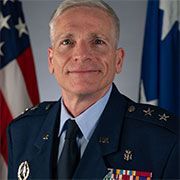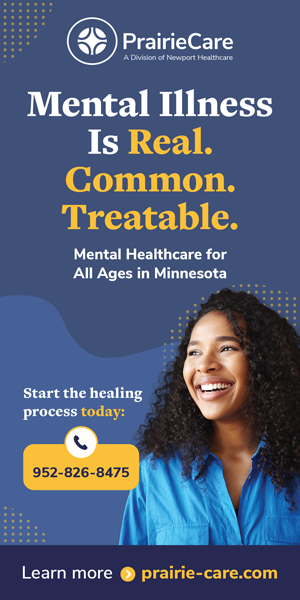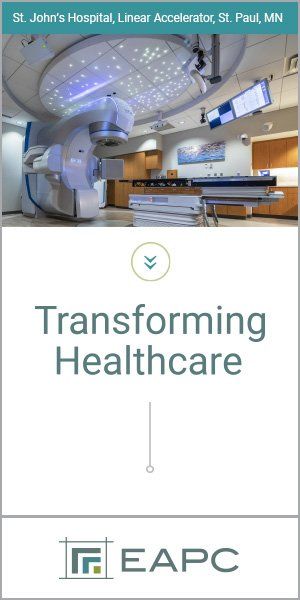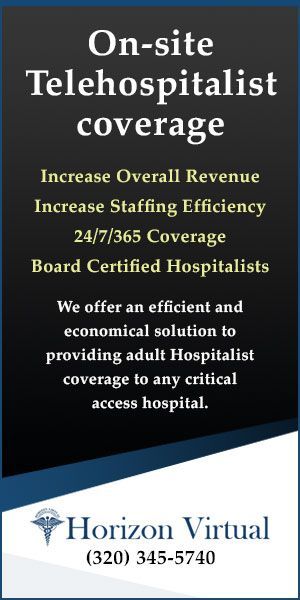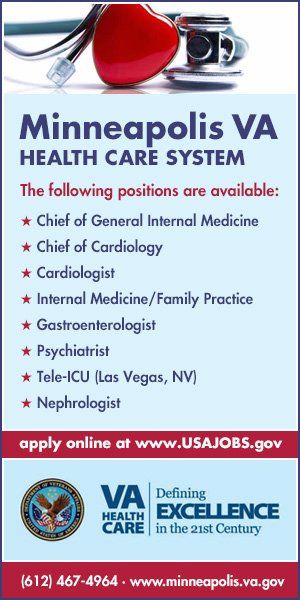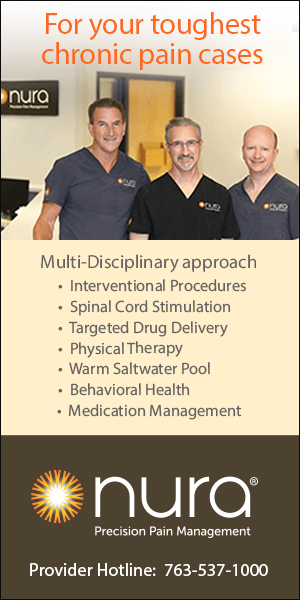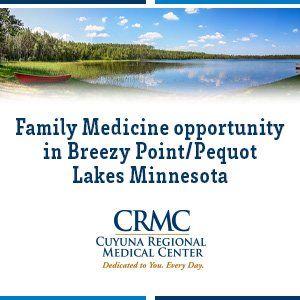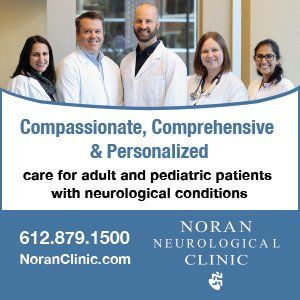Interview
Space Medicine – Thank a Guardian
Maj. Gen. Sean T. Collins, Director of Space Force Medical Operations
Many people are not familiar with how quickly the U.S. Space Force has become such a far-reaching organization. What can you tell us about the Space Force?
Although the U.S. Space Force was established Dec. 20, 2019, its development was a natural progression of technological advancements and ever-increasing national interest stemming from WWII. As a service, the U.S. Air Force has been supporting space operations since its inception in 1947, and Air Force Medical Service medics have supported human space flight since the late 50’s. Priorities in national defense have shifted, increasing emphasis on space operations.
The infrastructure the U.S. Space Force was built on has evolved over recent decades. Gen. Bernard Schriever led the Air Force’s first space-related organization in the ‘50s and was the chief architect of the Air Force’s early ballistic missile and space programs. He helped the U.S. maintain pace with the Soviet Union following Russia’s 1957 launch of an intercontinental ballistic missile and paved the way for Air Force’s support of the first mission to the moon. In 1982, the Air Force established the Space Command as a major command. In 1985, it was redesignated Air Force Space Command to distinguish it from the Naval Space Command and the Army Space Command. In 2019, the Air Force Space Command was redesignated as USSF and became the transitional headquarters for the new service.
The USSF secures our nation’s interests in, to and from space. Space Force Guardians span the globe. The USSF is a lean, agile and digital (technologic) service tasked with organizing, training and equipping organic and assigned Space Force Guardians who conduct global space operations. The USSF personnel, called Guardians, are highly skilled warfighters from numerous career specialties who work together to secure the space domain. With no inherent medical capabilities, the USSF, relies on the Space Force Medical Operations Directorate, nested in the Air Force Medical Service, for medical support.
Space medicine is a preventive health and occupational health specialty.
Many people are also not able to define the term Space Medicine. Please share some of what it entails.
Aerospace medicine is the cornerstone of Air Force Medical Service responsibilities and has been since the Department of Air Force’s inception. Indeed, Air Force medical personnel have supported human space flight since the space program’s beginning.
Space medicine has evolved from the expected skill sets found in aerospace medicine, but the requirements are increasing. Our NATO partners also doctrinally note that it is the specialty of aerospace medicine that encompasses both aviation and space medicine. Additionally, space medicine is a preventive health and occupational health specialty that encompasses operational, clinical and regulatory human performance optimization of people involved with space operations. This includes ground-based operations supporting the space domain as well as human space-flight support.
Space medicine specialists use preventive medicine tenets to optimize the preflight/on mission and post mission health of astronauts, controllers and nonprofessional spaceflight participants. Space medicine physicians are expected to be adept at threat assessment and risk mitigation, to avoid medical issues during mission operations.
Aerospace medicine specialists engaged in space medicine should be board certified in aerospace medicine. Aerospace medicine physicians are often multi-board certified because they understand that practicing a specialty in space, for instance, gastroenterology, would not mean that they were also space medicine qualified; it would just mean they were a gastroenterologist performing their specialty on orbit, unless that also included aerospace medicine residency training and board certification.
The dynamic and rapidly evolving nature of medical responsibilities in support of commercial and military operations in, from and to the space domain requires that space medicine operational practitioners should comply with national, federal and international expectations for flight safety.
What are some of the biggest challenges the Space Force faces?
Space operations are multidomain and multidimensional endeavors. The space domain intersects and interconnects the ground, sea, air and space. Guardians have to be able to process information coming to them via multiple formats and make accurate and critical decisions. There is a careful balance required to sustain freedom of movement and access in, to and from space for commercial, civil and civilian users of the space domain while also securing national defense and deterring aggressors.
How is the Space Force working with other countries?
Space is critical to modern military operations. Our daily lives and our national security are inextricably reliant on safe, stable space operations. The Air Force Medical Service, aligned with our military and civilian leaders, are committed to continued and expanding partnerships with other countries, allies and innovators involved in establishing humanity as a space-faring people.
How does zero gravity potentially contribute to advances in medical research?
Medical research of the impact of zero gravity is exciting. Microgravity and forces of acceleration, as part of medical research, uncover cellular, biochemical and physiologic relationships not appreciable on Earth. By uncovering these relationships of immune function or cell growth for instance, this research can inform diagnostic, prognostic and countermeasures or treatment solutions for various disease processes. For instance, bone architecture changes in microgravity. If we can better understand the how and the why that change occurs, we could potentially help people on Earth with brittle bones. Medical research on orbit also provides an arena to test medical equipment.
Zero gravity is just one aspect of medical research conducted in space. The Air Force is continually exploring innovative research opportunities to support space operations. In 2023, the Air Force’s 711th Human Performance Wing, Air Force Research Laboratory, and the 59th Medical Group created a military research working group to address space-linked medical research gaps. The Clinical and Operational Space Medicine Innovation Consortium, or COSMIC, will serve as a platform to fuse human health and performance research capabilities and expertise across both organizations.
As an example, as a proactive measure, the Space Force encourages a holistic approach to health and employs Guardian Resilience Teams as a program to encourage Guardians to sustain positive health habits. Resilience teams are typically composed of a holistic health integrator, physical therapist, certified strength and conditioning specialist, licensed mental health provider, mental health services specialist and religious support team. The teams deliver expertise in varying realms of wellness from physical to mental health.
What are some of the most important things you have learned about leadership?
Leadership is a privilege; we should not take it for granted. Our most junior airmen and Guardians should have no doubt that we value and respect them and their contribution to a fast-moving mission, in defense of the nation. They must have no doubt that we understand the sacrifices they make every day, by serving, and we must appreciate and honor the greater sacrifice we might all be asked to make.
Leaders have to be credible and approachable in order to build trust; our words and our actions have to match. We should not ask of others what we would not do ourselves.
What advice can you offer those who are pursuing a path of leadership?
Every one of us has the capacity to lead, in our own way. The path to leadership starts with self-reflection: “if not me, then who.” When we see things we aren’t happy with, we have the capacity to change things; change our perceptions, change our selves, change the world around us. You do this by setting an example, by identifying a problem and then building a solution, and by gathering people together to make a better today. Tomorrow will follow. It takes effort and a willingness to learn from experiences and from others. It also takes an understanding that leadership involves risk, but so does followership. Believe in yourself; and rather than being adversely affected by naysayers, smile and take it as a welcome challenge—Game on.
What are some of the most surprising things that you can share that people do not know about the Space Force?
They are on the job and keeping us safe 24/7. They secure our ability to travel, use an ATM, enjoy entertainment, monitor the weather, communicate with loved ones and do things we take for granted every day. Next time you text a friend, take a moment and thank a Guardian!
Maj. Gen. Sean T. Collins,
is the Air National Guard Assistant to the Surgeon General for the Department of the Air Force and Space Force and Director of Space Force Medical Operations.
MORE STORIES IN THIS ISSUE







